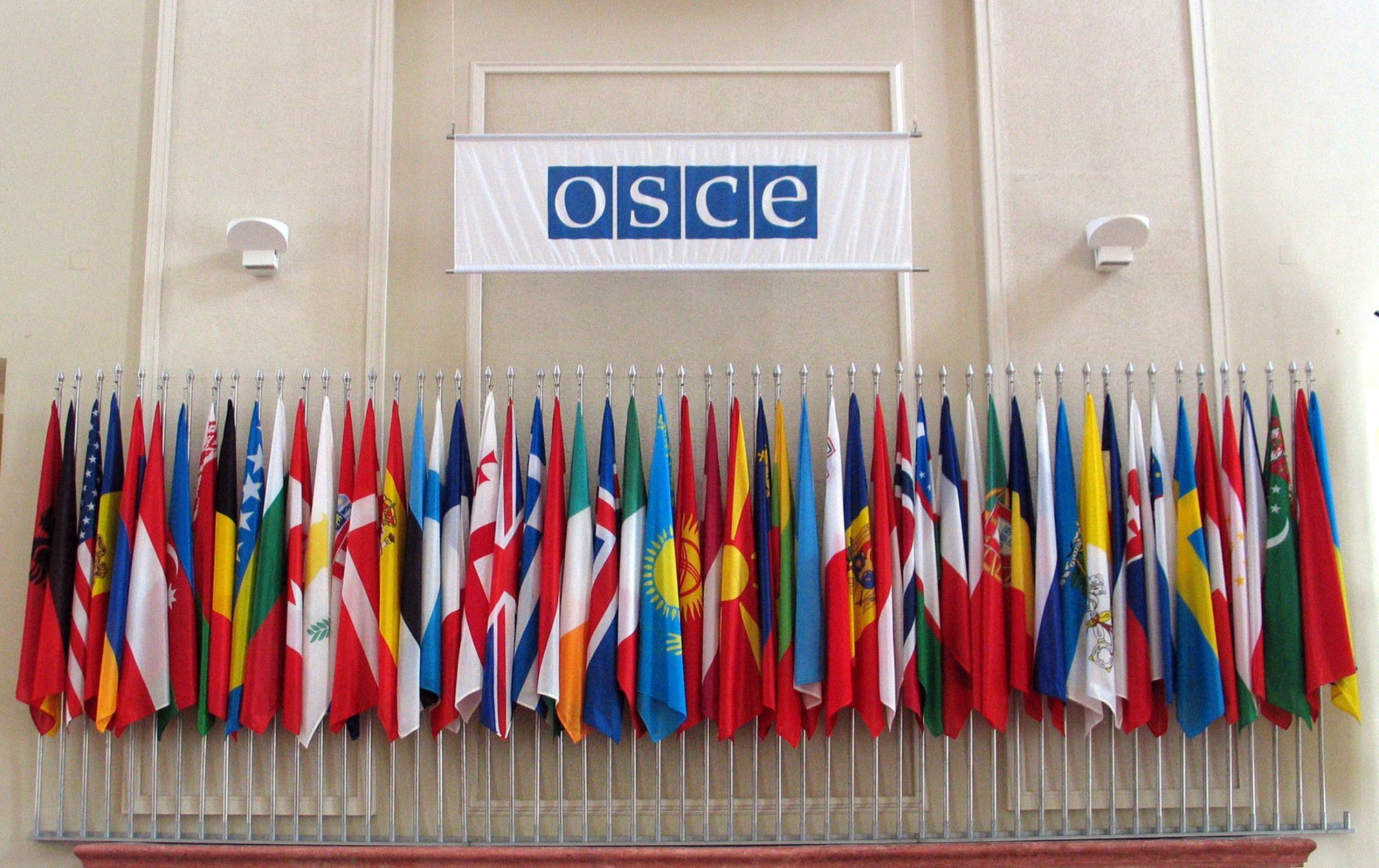OSCE/Mikhail Evstafiev

Ukraine calls for suspending Russia from the OSCE
Ukraine made an appeal on Tuesday to suspend Russia from the Organization for Security and Cooperation in Europe (OSCE).
“What is the added value of Russia’s participation in OSCE after it has violated all ten fundamental principles of the Helsinki Final Act?” asked Ukraine’s Foreign Minister Dmytro Kuleba at the OSCE Annual Security Review Conference, the OSCE’s flagship event on regional security challenges.
“How does Russia contribute to the security and cooperation in Europe, except ruin it?” he continued. “It is common sense that after all Russia has done, it should not be present at this table,” Kuleba said.
Kuleba cited the Council of Europe, which expelled Russia as a member on March 16, one day after the country informed the organization of its plans to withdraw.
No mechanism available
But experts and diplomats say that the OSCE lacks a viable mechanism for dismissing Russia from the OSCE.
In the OSCE, all decisions require the consensus of the 57 participating States. There is only one exception to this rule: the so-called “consensus minus one” provision, which was established in 1992 at a Prague meeting of the Council of OSCE Ministers.
At the time, it was decided that “appropriate action may be taken […] if necessary in the absence of the consent of the State concerned, in cases of clear, gross, and uncorrected violations” of OSCE commitments.
This provision has been applied only once in the history of the OSCE, in July 1992, when Serbia and Montenegro was suspended for human rights violations and aggressive actions mostly against neighboring Bosnia-Herzegovina in the aftermath of the bloody breakup of the former Yugoslavia. Serbia and Montenegro was only readmitted in November 2000 as fully-fledged OSCE participating State.
Experts have argued that while Russia’s brutal war against Ukraine and apparent war crimes would certainly justify suspension, such a proposal would be unlikely to succeed given the fact that several of Moscow’s allies — such as Belarus and other members of the Russian-led Collective Security Treaty Organization, including Armenia, Kazakhstan, Kyrgyzstan and Tajikistan — would likely oppose Russian expulsion.
“Get them out”
But Ukraine’s Foreign Minister Kuleba on Tuesday insisted that if there is no appropriate suspension mechanism in place, then a “procedure” must be set up to “get them out.”
“The OSCE needs to make a tough choice. Leave things as they are and allow Russia to ruin the Organization or take action and find a way to suspend Russia,” he said.
But OSCE diplomats in Vienna say that setting up a new procedure would again require a consensus decision, which would likely be vetoed by Russia and its allies.
OSCE expert and veteran OSCE watcher Arie Bloed also pointed out in an article in March that a move to suspend Russia from the OSCE would most likely lead to Moscow completely withdrawing from the Organization by itself.
One diplomatic source in Vienna said that Ukraine primarily wants to initiate a discussion on the topic with the aim of creating a new mechanism for expelling states, so that the OSCE is protected in the future from a single state taking the entire Organization hostage.
Existential threat
Indeed, many OSCE diplomats in Vienna worry that Russia may try to use its veto power in the coming months to paralyze or even dismantle the Organization.
Russia is currently blocking the approval of this year’s OSCE budget. The OSCE can still function without a budget through “monthly allotments” — payments that amount to one-twelfth of the previous year’s budget. But without an approved budget, the Organization is prevented from implementing any new projects or activities.
In his statement on Tuesday, Kuleba regretted that Russia had “unilaterally prevented” the extension of the OSCE Project Coordinator office in Ukraine. The OSCE field operation mandate expires today, meaning that, in tandem with the failure to renew the OSCE Special Monitoring Mission mandate at the end of March, the Organization will lose its entire presence in Ukraine.
Russia may also block consensus on other upcoming critical decisions, such as whether to extend the mandates of almost all other OSCE field missions, including those in the Caucasus, the Western Balkans, and Central Asia. If that were to happen, it would create an existential crisis for the Organization, as the OSCE carries out activities in these regions that are vital to maintaining peace and stability.
There is also still uncertainty about which state will chair the OSCE in 2024 – a decision that has to be approved by the end of this year. Without such a decision, the OSCE would be without proper political leadership.
Speaking to SHR Monitor about the situation, several Western OSCE diplomats said that despite the real risk of Russia causing major disruptions, there is currently little support for expelling Russia from the OSCE. Apart from the fact that the OSCE lacks an appropriate mechanism for expulsion, the majority of states apparently still believe – at least for the time being – that it is better to maintain a platform for dialogue with Russia, even if this may come at the price of significantly slimming down the Organization.
In a recent publication by the OSCE Network of Think Tanks and Academic Institutions, Professor P. Terrence Hopmann from the School of Advanced International Studies at Johns Hopkins University in Washington D.C., pointed out that expelling Russia would “prevent the OSCE from playing any useful role in facilitating an agreement to end this war or, perhaps even more importantly, from assisting in the implementation of whatever agreement brings this war to an end.”



Comments
* Your email address will not be published